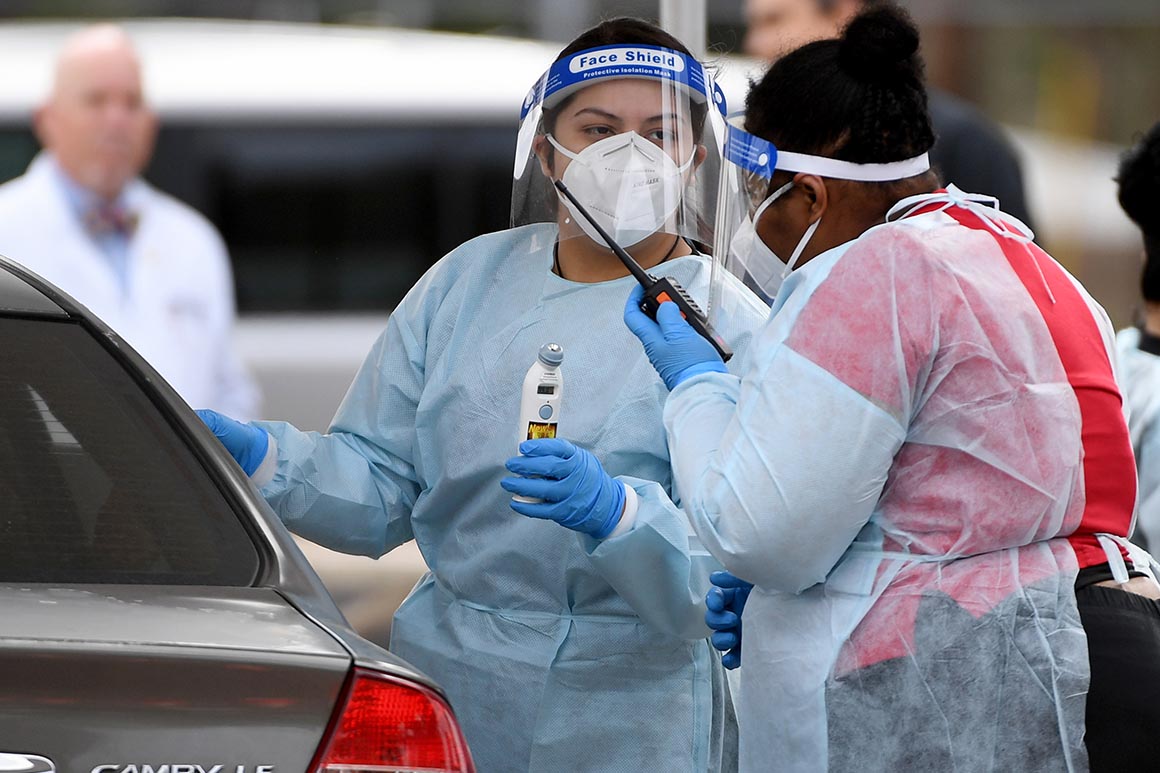
The FDA continues to grant emergency authorization to tests developed by commercial manufacturers and academic hospitals on a near daily basis. Some test developers are taking advantage of a FDA policy that allows them to bring coronavirus tests to market before receiving formal emergency authorization.
And health departments in six states — Connecticut, Maryland, Mississippi, Nevada, New York and Washington — are using powers granted by the FDA to authorize labs within their borders to conduct coronavirus testing.
2. Further growth of lab-based testing will be slow
Members of the American Clinical Laboratory Association, which include commercial labs such as Quest Diagnostics and LabCorp, have steadily added capacity to test patients. They’re now analyzing more than 100,000 tests each day.
But further growth at these private labs, which the Trump administration has relied on to conduct widespread screening of Americans, may be a challenge. “We’re hearing from many labs, and not just members, that shortages of test kits are limiting the ability to continue to build and expand that capacity,” ACLA President Julie Khani told POLITICO.
Part of the problem is that the FDA has authorized a variety of tests that each use a different set of instruments and supplies — and often aren’t interchangeable.
Public health labs are also hampered by scarce testing supplies. Ongoing efforts by HHS testing czar Brett Giroir to make commercial test kits available through a CDC distribution system could help labs stay stocked, said Scott Becker, CEO of the Association of Public Health Laboratories.
“We need to get out of a situation where when one place is running low, the governor calls the White House and the White House then calls HHS,” he said.
3. Existing antibody tests may not be accurate enough
Blood tests that can determine whether a person has ever been exposed to the coronavirus could be critical to understanding the true size and geography of the U.S. outbreak.
Known as serology tests, they look for antibodies to the coronavirus in a drop of blood. The presence of those antibodies signals that a person was infected at some point — and likely has some immunity to the virus.
But officials at public and commercial labs say that a FDA policy allowing some serology tests to be used without agency review could allow inaccurate tests onto the U.S. market, which could distort crucial data on how many people have been infected.
During a meeting with FDA Commissioner Stephen Hahn, “We described the concern about the fact that we were being flooded by marketing by these companies that were throwing these tests at us,” Becker said. “There was no quality control, no data available to see how they actually operate.”
On Monday, Giroir announced that the FDA would work with CDC and the National Institutes of Health to validate some of the antibody tests already on the market. “It’s very important that they do what they say that they do,” Giroir said. “We have reason to believe not all of them are going to perform well.”
4. The new rapid tests are not widely available
The introduction in late March of a rapid coronavirus test that produces results in 15 minutes has been praised by both Trump and public health experts as a critical step in the U.S. outbreak response.
Made by Abbott, the test can be performed in a doctor’s office or emergency room — allowing physicians to quickly identify and isolate those who are infected or free up space for other patients.
Source: politico.com
See more here: news365.stream






